How to Support Grieving Children
at Funerals or Memorial Services
Acknowledge Them
Children need to be acknowledged; sometimes, a simple hello or friendly greeting can go a long way. They also may want to be left alone at times to work through their feelings of grief. At the funeral or memorial, acknowledge them and the fact that their loved one was important to them. Children need to know that they matter, and they want to see that you care about them.


Follow Their Lead
Each child’s response to death and loss is different. Their needs and reactions may change over time. It is a good idea to check in with children before, during, and after a funeral. Do not assume they will feel the same way as they did two days ago or even a few hours ago.
Help Them to Understand
Children’s grief process usually involves:
- Thoughts
- Feelings; and
- Reinvesting in the world.
A child’s grief is guided by how they think and feel about the death. Thinking about what has happened will help them process the death and come to accept the loss. The funeral or memorial service helps children to process these thoughts and feelings. Allow them to ask any questions they may have.


Take Time Out for Them
Take time to be helpful and supportive. Try to prepare the children for what will happen and create a safe atmosphere to grieve their loss. Taking time to “be there” will help children cope with their loss in a good way.
Let Them Play
Children will experience a wide range of feelings; however, they often struggle to express them. Providing children with toys, crafting materials, and art supplies at the funeral or memorial can allow them to use play and creativity to help them express their thoughts and feelings. You will also want to ensure the children have space to play or create. Having activities available will help them feel more comfortable and at ease.
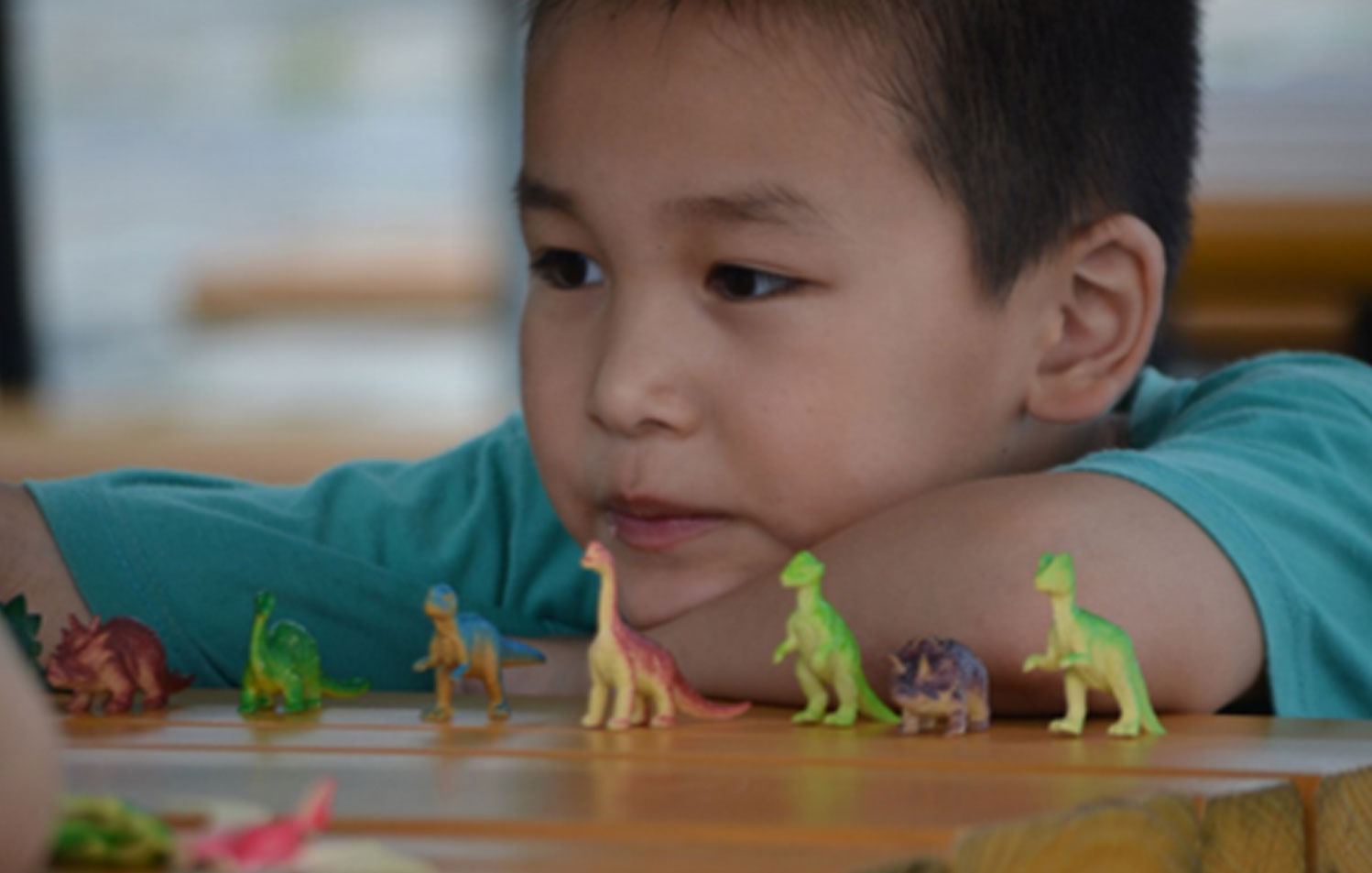
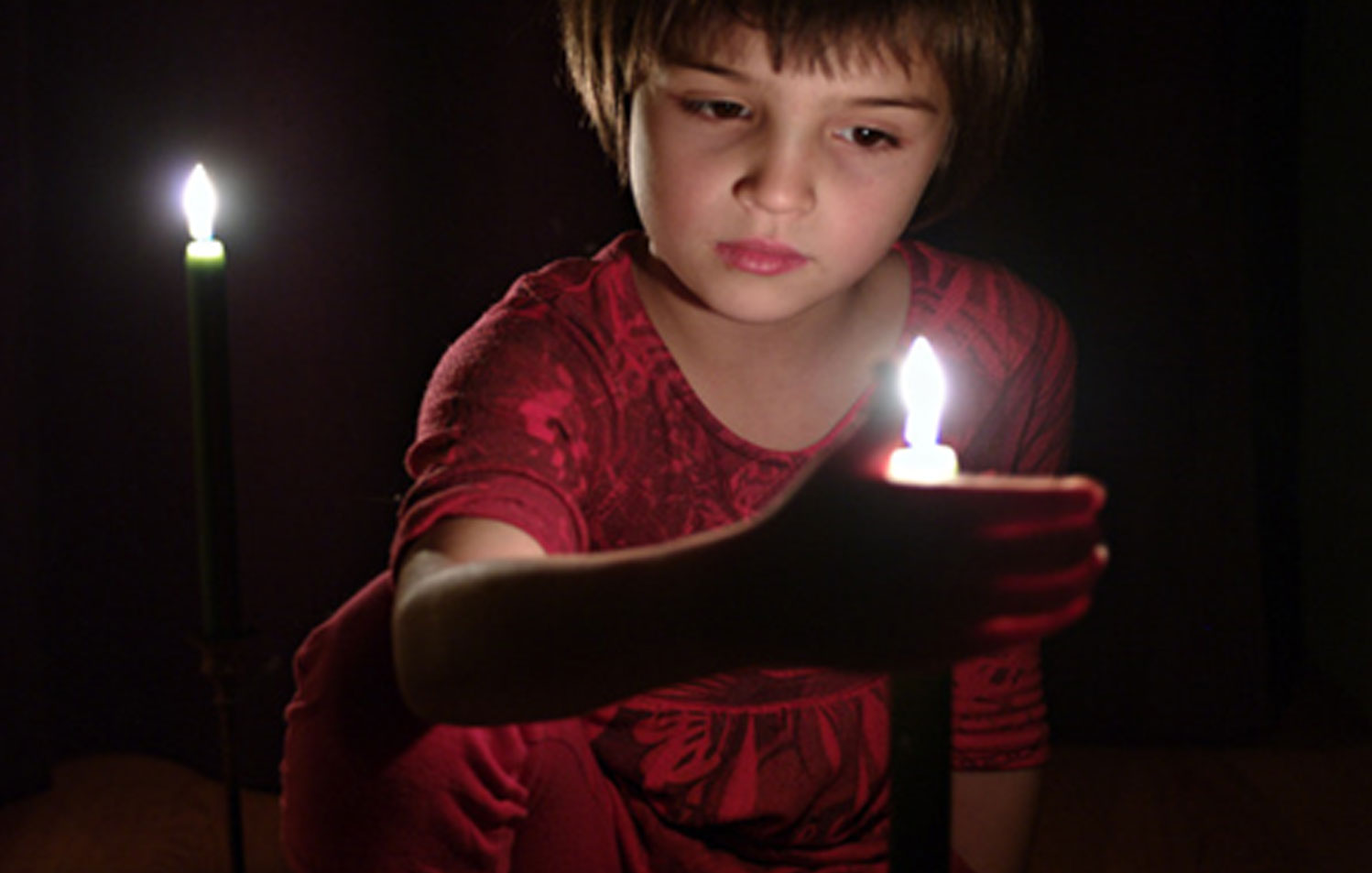
Create a Safe Space for Them
Children will need to have a safe space to explore their feelings of grief when someone close to them has passed away. Allow them to create their own ritual or activity they can take ownership of. Maybe they will want to light a candle, honour the deceased with flowers or read a short poem to honour their loved one.
Include Them
Children learn by touching, seeing, and doing. They will have a much more positive experience and experience healing if they are included in some of the decisions and key parts of the funeral or memorial service. Most children will appreciate the opportunity to participate in the funeral or memorial. This can be as simple as handing out order of service cards or helping with placing wreaths and pictures.


Prepare Them
Many times, children are not prepared for what they will see and what they can expect at a funeral. When you empower children with knowledge, they will be better prepared for what they are going to experience at a funeral service, memorial or wake service. This preparation will make the children feel safe and allow them to contribute (if they want to) and get the support they need.
Use Child-Friendly Language
Children will be better prepared when they are told things directly. For example, they may not understand what you mean when you say someone has “passed away,” but they will understand if you say someone has died or is dead. Also, children can better understand what it means to be dead by understanding what it means to be alive. When discussing death with children, work with what they already know and understand, such as nature, pets, and other experiences they have had with death.

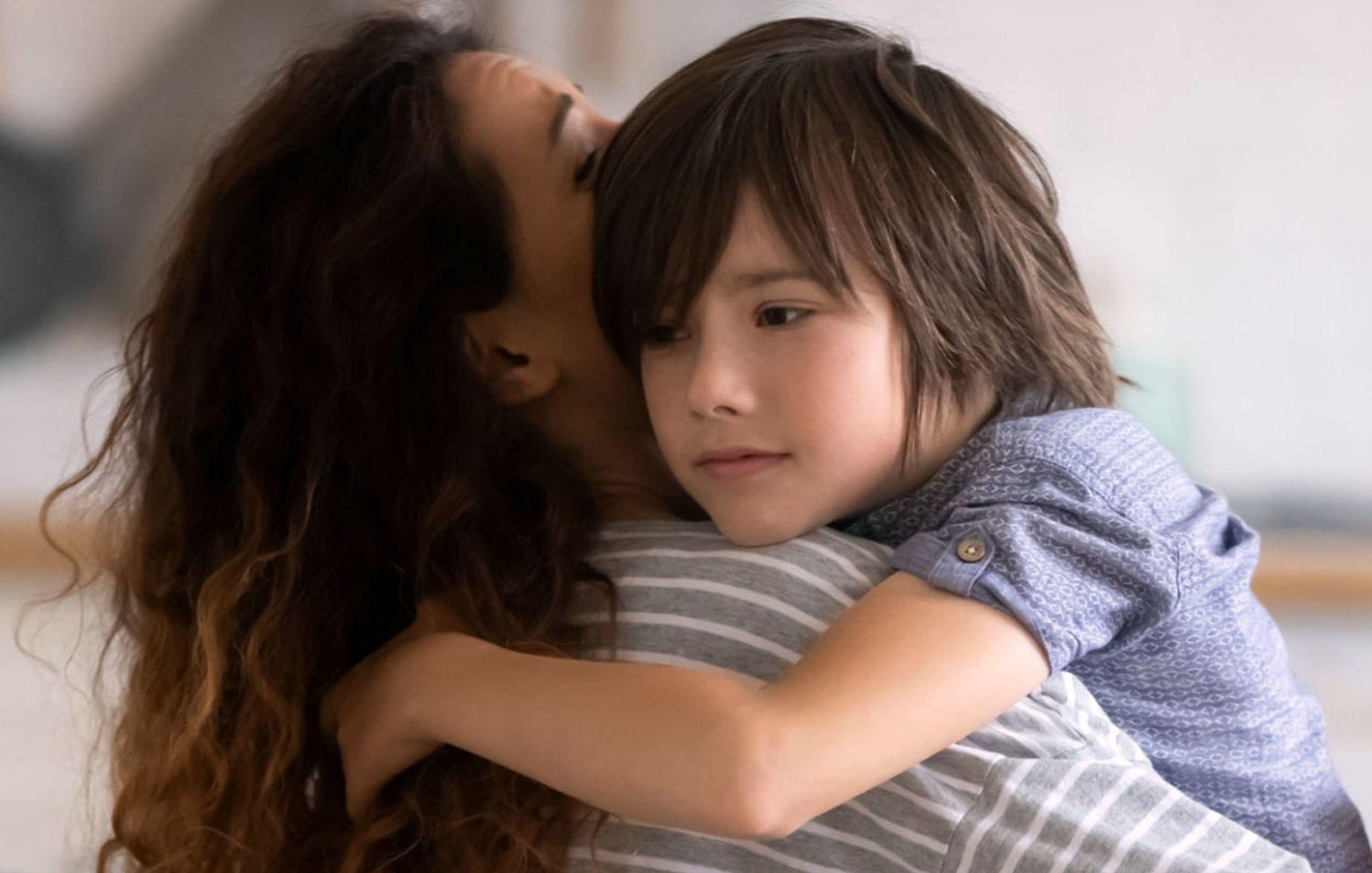
Try To “Keep it Real”
Try to meet children at their emotional and physical levels. Physically get down to their level, see them at eye level, and talk with them in a safe and comfortable way. The experience of losing a loved one is very real for children. If you keep it real, children will trust you more and have a better experience, especially if they can relate to you.
Tips for Communicating with
Grieving Children
One Thing to Remember…
If a child does not want to talk, it is best to respect that and let them know that you are there when they are ready or if they decide that they want to talk.
Experiencing the loss of a loved one is hard on everyone. Children may struggle with how to process their emotions when they lose someone who is close to them, and it can be hard to know what to say to them. Here are some tips on how to communicate with a child or a young person.

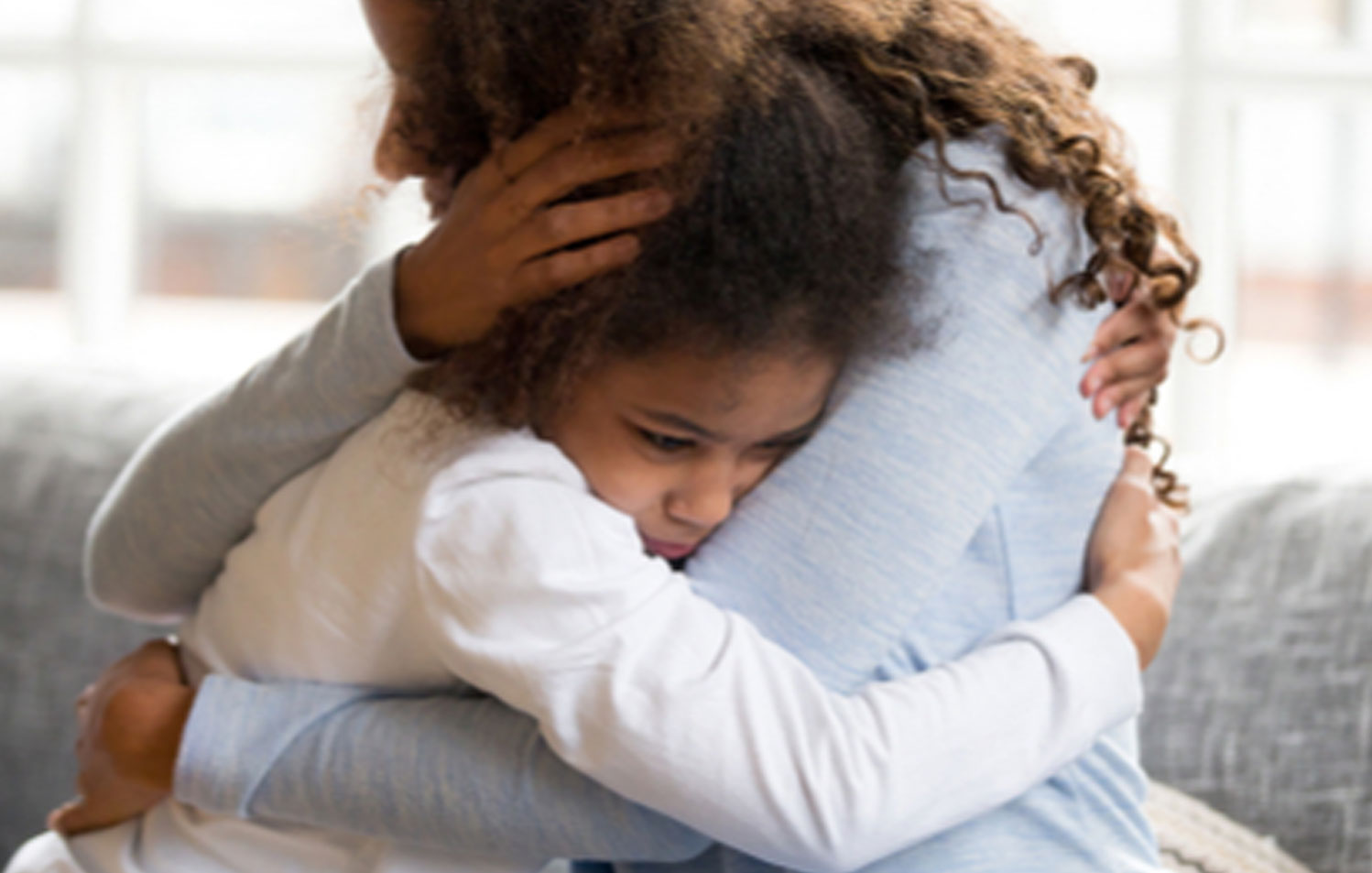
Listen to Them
Talking is not always helpful but listening is. Being silent and listening to a child can make them feel open to sharing their feelings. Don’t feel like you need to give advice or make comments, most often children need to be heard. You can say things like “I hear you,” or “I hear what you are saying” or “tell me more” to let them know that you are actively listening to them. You can also rephrase what they have said, for example, “It sounds like you are really going to miss __________ (insert name of loved one).” Or “It sounds like you are really having a tough time, which is understandable.”
Be Present
When a child is telling you how they feel, be present. Let them now that you care about their concerns, and that you are giving them your full attention. Although life is very busy and full of distractions, try to block these things out and focus the child completely. They will know if you are tuned into what they are saying or not and they can be very sensitive.


Ask Open-Ended Questions
If you ask questions that have yes, no or I don’t know responses, children are less likely to communicate. To encourage more sharing, avoid asking questions that have yes, no, or other single word answers. Try using open ended questions like, “How was your day?” or “How are you feeling?” or “Tell me one good thing that happened today.” Make sure you give them time to think and time to respond. You can also ask gentle follow up questions such as “What is that like for you?” or “What else happened?”
Follow Their Lead
Try to let the child take the lead on the conversation instead of just asking them questions. Pick up on what they are saying and try to focus on the subjects that they want to talk about. You can validate a child’s feelings but naming the feeling and reflecting it back to them with your words. For example, you could say, “It sounds like you are really feeling lonely.” If they do not want to talk, that is okay too. Be sure to give them the time and space that they need.
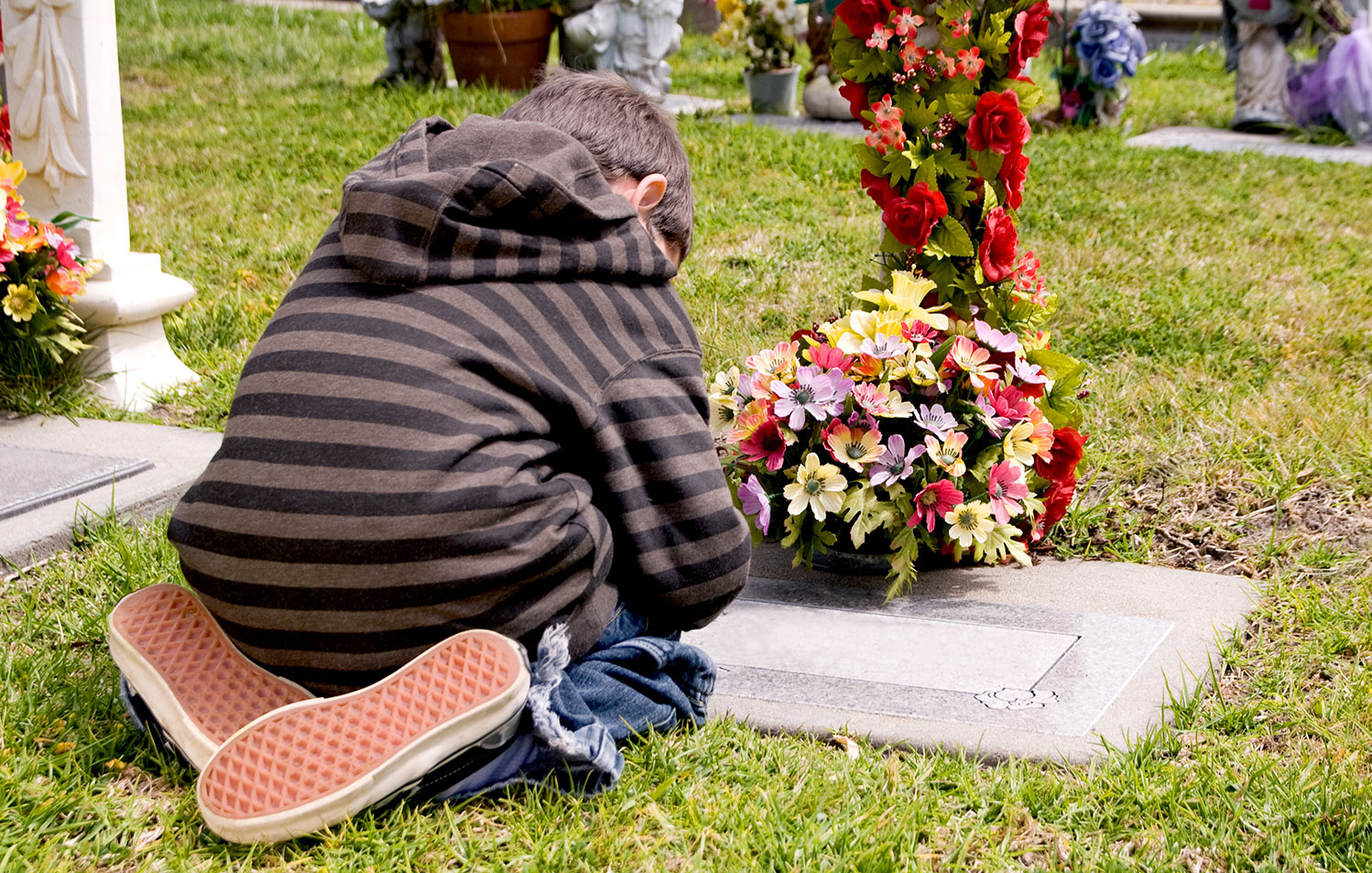

Be Honest
Children are much better at handling the truth than we think. When we tell children the truth, builds trust with them and shows them that they can be honest with us too. Being honest also means letting children know that you do not have all of the answers, which is okay. When children know the truth about a situation, they can develop positive coping skills.
Tips For Mother’s Day
Every year Mother’s Day is celebrated in schools, at workplaces, and in homes. For those whose parent or a child died, Mother’s Day and other holidays can be painful time. Although it may be difficult to avoid reminders such as greeting cards and store displays, it is possible to prepare yourself for these potential triggers.
Be Prepared for Your Feelings
When you know that Mother’s Day is approaching, try to prepare yourself for feelings that might be triggered such as sadness, loneliness, anger or feelings of isolation. Memories that you have of your loved one could also create feelings of happiness. Allow yourself to feel any of these feelings when they arise. Crying can be very therapeutic, as can laughter. Remember, feelings are never wrong, they just are.
Try to Plan Ahead
Think about what you want to do or what you do not want to do on this day. Who would you like to spend Mother’s Day with? Hold a family meeting and include the children and grandchildren in your plans. You can make a plan together about how you would like to spend the day. For many, Mother’s Day is a nice day to visit the graves of lost loved ones and clean them up or leave flowers to honour your loved one’s memory.
Expect the Unexpected
Grief can be unpredictable. It tends to come in waves and then slowly disappear until it reappears again. Most of all, grief can be very challenging. While going through the grieving process, you may notice a decrease in your energy level, and you may not feel like yourself. Be patient and loving with yourself and do your best to practice self care and self love.
Don’t Make Assumptions
The people in your life may not remember that Mother’s Day is different for your family. It may help to let people who are close to you know what your wishes are for that day or how you feel about Mother’s Day given your loss. For example, you may want to gently remind teachers to be sensitive with children and/or grandchildren who have experienced a loss. They may wish to either participate or not participate in Mother’s Day crafts or activities, and their wishes should be respected.
Honour The Memory of Your Lost Loved One
Find creative ways to honour and remember your lost loved one. You may want to visit their grave or another special or memorable location. You can also light a candle, have a moment of silence or have a special dinner or feast in their honour.
Revisit Cherished Memories
Look at photo albums or videos. Take turns sharing stories and encourage family members to share memories and stories as well. You could have family and friends write special memories and save them in a decorated box. Let them know that it’s okay to feel happy or sad feelings as they remember.
Write Letters
You can write a letter to your lost loved one on Mother’s Day. Tell them how you feel, what you are doing, how you are feeling, what you miss about them, what you wish for, what goals you have, and in what ways they are still part of you and your life.
Be Gentle with Yourself
Allow yourself to feel the feelings that come up on this day. Remember that it’s okay not to be okay; and it’s also okay to feel good too. You may be happy to have the opportunity to honour and remember your loved one.
Allow Others Support You
Contact the people in your life who are helpful and supportive to you. Let them know what they can do for you. You don’t have to do this alone, unless you want to.
Keep Your Bond Strong
Although your loved one is gone, your relationship continues, and your love lives on. Find ways to continue to keep the relationship going. Share with them what has happened in the family, say a prayer for them or play or sing a song to honour their memory.
